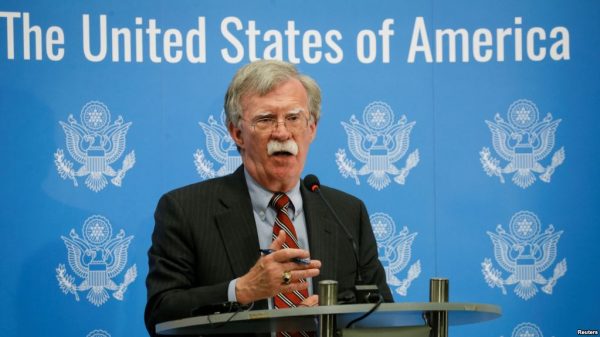
The United States is prepared to go on the offensive in cyberspace to ensure adversaries know there is a price to pay for hacks, network intrusions and other types of attacks.
President Donald Trump signed a new National Cyber Strategy Thursday, calling for a more aggressive response to the growing online threat posed by other countries, terrorist groups and criminal organizations.
“My administration will use all available means to keep America safe from cyberthreats,” Trump said in a statement, calling the new strategy an “important step.”
Other key officials called the new strategy an important and badly needed change.
“We’re not just on defense,” National Security Advisor John Bolton told reporters. “We’re going to do a lot of things offensively and I think our adversaries need to know that.”
“Our hands are not tied as they were in the Obama administration,” he added.
The strategy, which takes effect immediately, is being billed by the Trump administration as the first “fully articulated” cyber strategy in 15 years, providing direction to various departments and agencies on how best to protect their data as well as the private data of millions of Americans.
It also calls for specific measures to harden U.S. government networks from attacks, like the June 2015 intrusion into the U.S. Office of Personnel Management (OPM), which compromised the records of about 4.2 million current and former government employees,an attack attributed to China.
The new strategy comes less than two months before the U.S. midterm elections on November 6, and as key security and intelligence officials have amplified their warnings that Russia and other adversaries, like China, Iran and North Korea, may seek to use cyber means to interfere.
The new U.S. cyber strategy seeks to allay some of those concerns by promoting responsible behavior in cyberspace, urging nations to adhere to a set of norms, both though international law and voluntary standards.
As for what offensive cyber measures might look like, Bolton would not say. But White House officials contend they have already made it easier for the military to hack back by reversing a directive from the Obama administration known as PPD-20, which created what they describe as a lengthy approval process for any offensive operation.


